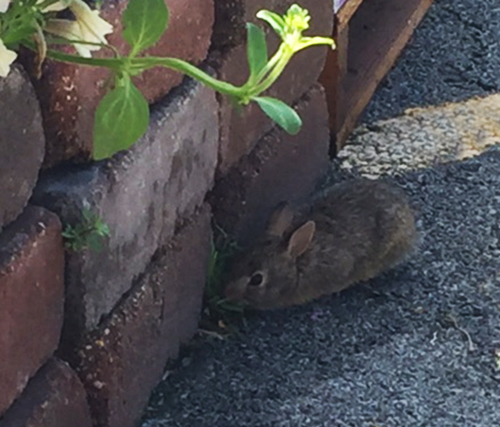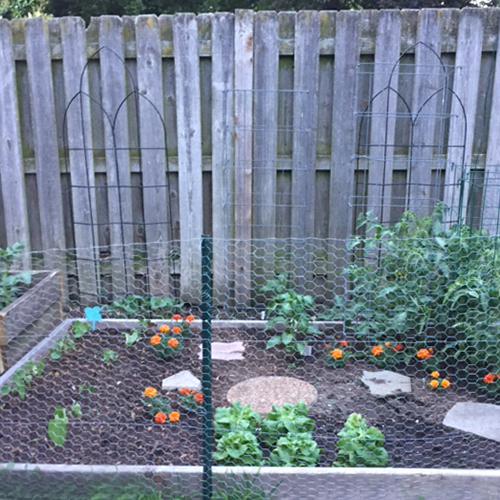There may come a time when you venture out to your garden and find your pepper plant munched down to the stem, or your dill decimated without a trace. What’s eating your garden? There’s many answers to that question, but generally young, tender vegetable plants are just too tempting for garden pests like rabbits, squirrels, deer, insects and more to resist.
How do you keep them at bay? When plants are small, we recommend cages or fence barriers to keep out pests of the furry kind. Galvanized wire fencing is available in various sizes and designs at garden centers and hardware stores. They can be cut and molded to wrap around sections in your garden. This first line of defense should help get your plants to a larger size where they’re less likely to be eaten.
There are also "liquid fence" options – everything from commercial sprays that mimic predators to homemade ones of cayenne pepper, garlic and onion to deter munching. Some gardeners also like to plant certain herbs and flowers around their garden to keep out unwanted visitors: Lavender, Marigolds, Fennel, Chives, Onion, etc., all provide a natural distraction or repellent to garden pests. Read additional pest control options at our blog post here.

Insects, garden slugs, snails, caterpillars and more can also munch aggressively. Scout the undersides of your leaves or watch for tell-tale signs of bites. Options for control include handpicking and plopping them into a soapy water mixture, a steady stream of water to knock them off, or introducing predatory “good bugs” like Lady Bugs, Ground Beetles, Green Lacewings and Wasps.

There are also soil amendments like Bacillus thuringiensis (Bt) and Diatomaceous Earth (DE) that could be sprinkled into your garden to discourage eating. Your local university extension office may have additional recommendations on pest control, as well as regional details on what to watch for.
Have a pest control trick to share with fellow gardeners? Tell us in the comments section below, or send photos of your garden space to gardenhelper@burpeehomegardens.com.